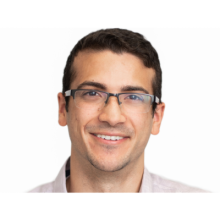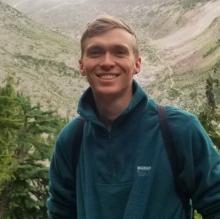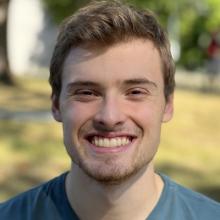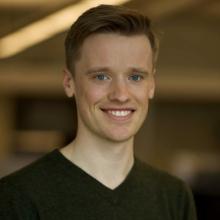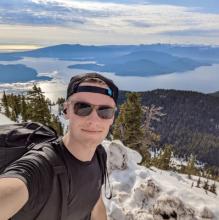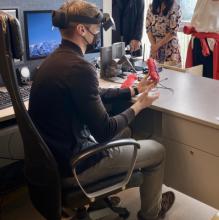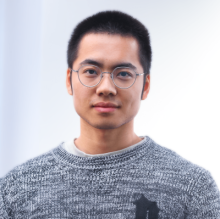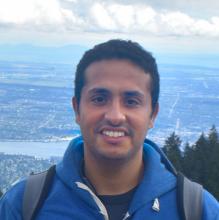Explore the vast range of research happening at ECE and read through student perspective profiles! To learn more please visit Graduate and Postdoctoral Studies.
Adnan, Muhammad
Cross Stack Optimizations for large Deep Learning Models
The landscape of deep-learning models has undergone significant changes in the last few years, characterized by a steady increase in the size of these models. Leading the way in this trend are large language models, which have become increasingly prevalent and influential in the field of artificial intelligence. The emergence of such large models has brought with it a host of system-level challenges, particularly in relation to their training and inference. Training these models across distributed computational resources remains an open problem, while the deployment of large models for inference poses its own set of challenges. My research interest centres at the intersection of architecture and systems, with a particular focus on addressing the challenges posed by large deep-learning models.
The Computer and Software Systems Research Group at ECE includes excellent professors, addressing problems that align with my research interests. Beyond research, the beauty of UBC's Vancouver campus and the many physical activities available contribute to a healthy work-life balance, which is an important aspect of graduate life.
Gunter, Andrew David
Reducing wasted time in Field-Programmable Gate Array circuit design compilation
My work explores how we can limit the time spent compiling infeasible designs for Field-Programmable Gate Arrays (FPGA) through early compilation termination. FPGAs are composed of reconfigurable computer hardware, capable of implementing arbitrary hardware designs when programmed appropriately. However, some designs take undesirably large amounts of time — often multiple days — to compile and implement on an FPGA. I am researching how machine learning models can be leveraged to predict how long compilation will take and enable FPGA engineers to terminate the compilation when the predicted time is too much for their personal requirements. The engineers can then modify their design to reduce compilation time on a future run, allowing them to avoid wasting time on unnecessarily long compilation.
I was most interested in working with my PhD supervisor, Dr. Steven Wilton. He and I are very well-aligned in research interests, and he's a highly accomplished professor in our field. Additionally, UBC's Electrical & Computer Engineering department is well known and highly connected with other institutions globally, putting me in a strong position for my future.
Roorda, Esther
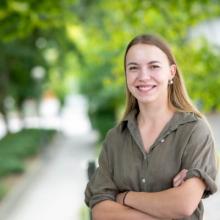

Developing sustainable practices in consumer electronic design and repair through community, education and technical design
The environmental and social costs of producing and disposing of electronics is a serious global problem, with concerning impacts on human health in developing countries, on the environment and on carbon emissions. Electronic products, and consequently e-waste, contain various toxic elements and pollutants, which pose a major threat to both ecosystems and to human health when discarded. Manufacturing these devices is also highly carbon intensive, with the embedded carbon of electronics often accounting for the majority of their total carbon footprint. In computer engineering, problems are typically only viewed through a technical lens, and only addressed using technical solutions, but this is a socio-technical problem, involving technical design, economic models of production and consumption, consumer behaviors and policy. To address growing environmental and ethical problems in computer engineering, we need to take a holistic approach, developing a richer understanding of the broader social context to inform technical solutions and bringing technical expertise into community collaborations, education and policy work. My research investigates how consumer behaviors and attitudes can inform the design of more sustainable, repairable electronics, how sustainability literacy (specifically around the environmental impacts of computing) and practical computer skills can be advanced through community engagement and education and how to develop sustainable alternatives to existing models of personal electronic design and consumption. A key part of my research involves community-based education. Firstly, through workshops and short-term courses, I’d like to help the broader community develop the computer literacy and technical skills required to engage in electronic repair and to better understand and articulate related concerns and needs. Secondly, I want to develop strategies for bringing community perspectives and meaningful sustainability education into the university-level electrical and computer engineering curriculum. Thirdly, through partnership and consultation with community members and groups, my work investigates the challenges and concerns of diverse groups when using personal electronics and engaging in maintenance and repair activities, in order to develop technical guidelines and policy recommendations.
Hill, Ian
Optimal experiment design for accelerated testing of integrated circuit wear-out reliability
Computer chips are expected to last for tens of years, yet for most markets engineers only have a few months from product sample to release to test whether their designs will last long enough before failing. My research aims to improve the design of accelerated aging tests through quantifying the expected information gain of different test procedures and the development of on-chip sensors for monitoring degradation in semiconductor devices.
My supervisor! I talked to many professors at other universities in Canada but felt that my current supervisor would provide the best fit graduate experience for me based on how I work and learn.
Thompson, Grady
Analysis of stochastic directed acyclic graphs
My research involves determining different analytical techniques to solve for and approximate end-to-end distribution times of stochastic directed acyclic graphs. This has many applications in high performance computing and cloud computing. The specific process we are attempting to improve is determining the end-to-end time distribution of a task, where the task can be broken into subtasks and distribution of the subtasks is known. The challenging aspect of the problem is when the subtasks are dependent on each other, with some requiring others to finish before they can start. In this problem the time is often very difficult to calculate exactly, which leads to the need for good approximations.
When I was deciding on what program I wanted to do for my undergraduate degree I looked for which one had the most computer science and math courses. I decided to pursue Computer Engineering and take math and computer science for as many electives as I could. Graduate school in computer engineering offers the same benefit of being math and computer science focused, which naturally drew me to it.
Black, David
Novel approaches to teleoperation and human computer interaction in medical robotics
My research involves improving teleoperation by leveraging mixed reality (MR), high speed communication, and haptics. First, we are developing a “human teleoperation” system in which an expert remotely guides a novice person in the field via an MR interface over 5G. While the deployment of robots in the field to carry out tasks such as tele-ultrasound or maintenance of aircraft faces myriad problems, our system takes advantage of the flexible, intelligent, inherently safe nature of people, using a novel MR approach to achieve near robot-like precision and latency in "teleoperating" humans instead of robots. Visual, audio, and force feedback to the expert provides them with an intuitive, realistic experience akin to carrying out the task personally. Our primary focus is on the application of this technology to tele-medicine to improve healthcare for rural and Indigenous communities in Canada and beyond. In a closely related project, our lab has developed a novel force sensor for the patient side manipulators of the da Vinci surgical robot, and I have helped implement force sensing on the surgeon side interface as well. This dual force sensing setup on by far the most popular robotic surgical system is to our knowledge unique, and we are using it to implement haptic feedback for the surgeon, so they can feel the forces applied in the patient. This has the potential to decrease tissue damage, improve suturing, and ease the learning curve for novice surgeons on the robot.
During one of my co-op work placements, I worked with my now PhD supervisor, Tim Salcudean, at the Robotics and Control Lab (RCL). I developed a strong interest in some of the research being carried out in the RCL, and found that Tim’s style of supervision and the way the lab was run really clicked with how I like to work. Tim is a world leader in this field, with many great connections and opportunities for collaboration and internships, and the UBC Electrical and Computer Engineering graduate program and its ecosystem inside engineering and also computer science has a number of other fantastic faculty, staff, and students. Not only does this form a great network of talented people who collaborate and help each other with research, but it is also inspiring and motivating seeing the many interesting projects and spin-offs coming out of this program.
Chen, Zitao
Making machine learning reliable, secure and private
Machine learning (ML) has achieved remarkable performance in many tasks like image classification, and already seen great prospects in many real-world applications. ML can facilitate precision medicine to empower clinical decision making, maneuver the driving vehicle without human intervention. On the other hand, existing ML technology is also brittle and prone to failure that could entail critical consequence: (1) a hardware mistake can translate to a software failure that causes an ML model to exhibit unexpected behavior, such as misclassifying a stop sign as a speed limit sign; (2) the ML model can also be easily fooled by the inputs that have been tampered with; and (3) struggle to provide both high quality of service and strong privacy protection when the model is trained on sensitive data. This engenders serious concern on the trustworthiness of ML. My research concentrates on three prominent challenges (reliability, security and privacy) in trustworthy ML and advocates a multi-faceted solution to improve the reliability, security and privacy of ML to fully deliver the promise of benefits of ML.
Hosseinirad, Sara
Automated Closed-Loop System of Anesthesia
In the literature, the closed-loop anesthesia control has been proven to outperform manual control. These systems will allow anesthesiologists to run several operating rooms simultaneously as well as to maintain a high standard of quality; however, some technological developments are missing. One of them is the lack of an integrative system that includes the impacts of changes in anesthesia, fluid, cardiac output, etc. on each other. In this research, we aim at automating the entire anesthesia process. In the first step, we will design a new depth of hypnosis and analgesia control system and its associated safety system based on a novel, universal pharmacokinetic model of propofol and remifentanil, known as Eleveld3. In the second step, we will investigate multivariable control of the many aspects of anesthesia beyond the depth of hypnosis and analgesia, e.g., cardiac output, arterial pressure, temperature, etc.
I gained an interest in control engineering when I was an undergraduate student in Aerospace Engineering. Here at UBC, my supervisors and their research group are one of the pioneers in control engineering, and I believe involving in their outstanding research projects on the closed-loop system for anesthesia will create a lot of opportunities for me in the future. Researching under the supervision of Prof. Dumont allowed me to meet many great researchers and engineers and learn from their experiences.
Ahmed, Khaled
Protecting Mobile Phone Users Against Malware
My research is about protecting mobile phone users from malware. In particular, I aim to protect users from malware that uses logic bombs, a technique by which malware hides its malicious intents from malware analysis. This requires developing efficient code analysis techniques for monitoring app behaviours, malware detection technique that can operate on a slice of the code which contains the untested behaviour, and develop hardware accelerators that can run the analysis efficiently.
The chance to work with and learn from top professors in my field. There's also a good mix of offered courses.



